Fleurs du Mal Magazine


Or see the index
Audio-file
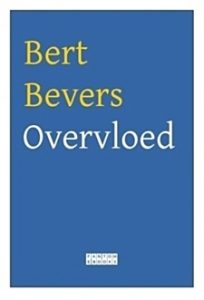 A reading of Ufarassus the Gothic translation of the poem “Overvloed” by Bert Bevers.
A reading of Ufarassus the Gothic translation of the poem “Overvloed” by Bert Bevers.
Translation by HroÞiland Bairteins, Tom De Herdt and J.G. Quak and recorded by Eric Kingsepp.
# Link to Audio-file of a reading of Ufarassus (Overvloed) by Bert Bevers
BERT BEVERS
OVERVLOED
Tien vertalingen van één gedicht
FANTOM EBOOKS
Art Brut Digital Editions
Series Fantom Ebooks
www.fleursdumal.nl
FANTOM 1
Fantom Ebook 2017
ISBN: 978-90-76326-09-2
NUR 306
1ste PDF-uitgave FANTOM, Augustus 2017
audio-file poem by Bert Bevers
fleursdumal.nl magazine
More in: #Archive A-Z Sound Poetry, - Audiobooks, Archive A-B, AUDIO, CINEMA, RADIO & TV, Overvloed
The poems of Ulrike Almut Sandig are at once simple and fantastic.
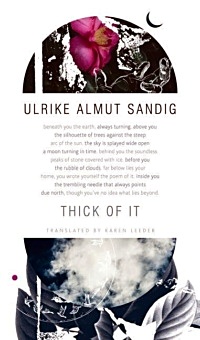 This new collection finds her on her way to imaginary territories. Thick of It charts a journey through two hemispheres to “the center of the world” and navigates a “thicket” that is at once the world, the psyche, and language itself.
This new collection finds her on her way to imaginary territories. Thick of It charts a journey through two hemispheres to “the center of the world” and navigates a “thicket” that is at once the world, the psyche, and language itself.
The poems explore an urgently urban reality, but that reality is interwoven with references to nightmares, the Bible, fairy tales, and nursery rhymes—all overlaid with a finely tuned longing for a disappearing world. The old names are forgotten, identities fall away; things disappear from the kitchen; everything is sliding away.
Powerful themes emerge, but always mapped onto the local, the fractured individual in “the thick of it” all. This is language at its most crafted and transformative, blisteringly contemporary, but with a kind of austerity, too.
By turns comic, ironic, skeptical, nostalgic, these poems are also profoundly musical, exploiting multiple meanings and stretching syntax, so that the audience is constantly kept guessing, surprised by the next turn in the line.
Titel: Thick of It
Autor: Ulrike Almut Sandig
Sprache: Englisch.
Buch (gebunden)
€ 17,49
YALE UNIVERSITY PRESS ACADEMIC
Distributed for Seagull Books
Translated by Karen Leeder
2018
96 pages
ISBN: 0857425560
EAN: 9780857425560
new poetry
fleursdumal.nl magazine
More in: - Book News, - Bookstores, Archive S-T, Archive S-T, Art & Literature News
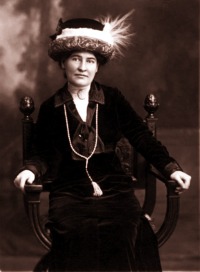
Arcadian Winter
Woe is me to tell it thee,
Winter winds in Arcady!
Scattered is thy flock and fled
From the glades where once it fed,
And the snow lies drifted white
In the bower of our delight,
Where the beech threw gracious shade
On the cheek of boy and maid:
And the bitter blasts make roar
Through the fleshless sycamore.
White enchantment holds the spring,
Where thou once wert wont to sing,
And the cold hath cut to death
Reeds melodious of thy breath.
He, the rival of thy lyre,
Nightingale with note of fire,
Sings no more; but far away,
From the windy hill-side gray,
Calls the broken note forlorn
Of an aged shepherd’s horn.
Still about the fire they tell
How it long ago befell
That a shepherd maid and lad
Met and trembled and were glad;
When the swift spring waters ran,
And the wind to boy or man
Brought the aching of his sires–
Song and love and all desires.
Ere the starry dogwoods fell
They were lovers, so they tell.
Woe is me to tell it thee,
Winter winds in Arcady!
Broken pipes and vows forgot,
Scattered flocks returning not,
Frozen brook and drifted hill,
Ashen sun and song-birds still;
Songs of summer and desire
Crooned about the winter fire;
Shepherd lads with silver hair,
Shepherd maids no longer fair.
Willa Cather
(1873-1947)
poetry
fleursdumal.nl magazine
More in: #More Poetry Archives, 4SEASONS#Winter, Archive C-D, Archive C-D
Osip Mandelstam is a central figure not only in modern Russian but in world poetry, the author of some of the most haunting and memorable poems of the twentieth century.
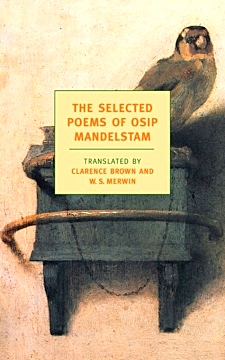 A contemporary of Anna Akhmatova, Marina Tsvetayeva, and Boris Pasternak, a touchstone for later masters such as Paul Celan and Robert Lowell, Mandelstam was a crucial instigator of the “revolution of the word” that took place in St. Petersburg, only to be crushed by the Bolshevik Revolution. Mandelstam’s last poems, written in the interval between his exile to the provinces by Stalin and his death in the Gulag, are an extraordinary testament to the endurance of art in the presence of terror.
A contemporary of Anna Akhmatova, Marina Tsvetayeva, and Boris Pasternak, a touchstone for later masters such as Paul Celan and Robert Lowell, Mandelstam was a crucial instigator of the “revolution of the word” that took place in St. Petersburg, only to be crushed by the Bolshevik Revolution. Mandelstam’s last poems, written in the interval between his exile to the provinces by Stalin and his death in the Gulag, are an extraordinary testament to the endurance of art in the presence of terror.
This book represents a collaboration between the scholar Clarence Brown and W. S. Merwin, one of contemporary America’s finest poets and translators. It also includes Mandelstam’s “Conversation on Dante,” an uncategorizable work of genius containing the poet’s deepest reflections on the nature of the poetic process.
Osip Mandelstam (1891–1938) was born and raised in St. Petersburg, where he attended the prestigious Tenishev School, before studying at the universities of St. Petersburg and Heidelberg and at the Sorbonne. Mandelstam first published his poems in Apollyon, an avant-garde magazine, in 1910, then banded together with Anna Akhmatova and Nicholas Gumilev to form the Acmeist group, which advocated an aesthetic of exact description and chiseled form, as suggested by the title of Mandelstam’s first book, Stone (1913).
During the Russian Revolution, Mandelstam left Leningrad for the Crimea and Georgia, and he settled in Moscow in 1922, where his second collection of poems, Tristia, appeared. Unpopular with the Soviet authorities, Mandelstam found it increasingly difficult to publish his poetry, though an edition of collected poems did come out in 1928. In 1934, after reading an epigram denouncing Stalin to friends, Mandelstam was arrested and sent into exile. He wrote furiously during these years, and his wife, Nadezhda, memorized his work in case his notebooks were destroyed or lost. (Nadezhda Mandelstam’s extraordinary memoirs of life with her husband, Hope Against Hope and Hope Abandoned, published in the 1970s, later helped to bring Mandelstam a worldwide audience.)
Clarence Brown is the author of a prize-winning biography of Mandelstam and is Professor Emeritus of Comparative Literature at Princeton.
W.S. Merwin was born in New York City in 1927 and grew up in Union City, New Jersey, and in Scranton, Pennsylvania. From 1949 to 1951 he worked as a tutor in France, Portugal, and Majorca. He has since lived in many parts of the world, most recently on Maui in the Hawaiian Islands. He is the author of many books of poems, prose, and translations and has received both the Pulitzer and the Bollingen Prizes for poetry, among numerous other awards.
The Selected Poems of Osip Mandelstam
by Osip Mandelstam, translated from the Russian by Clarence Brown and by W.S. Merwin
Paperback
Series: New York Review Books Classics
Pages: 192
Publ. Date: August 31, 2004
Language: English
ISBN-10: 1590170911
ISBN-13: 978-1590170915
Books That Everyone Should Read
fleursdumal.nl magazine
More in: Archive M-N, Mandelstam, Osip, REPRESSION OF WRITERS, JOURNALISTS & ARTISTS
Original, touching and much-anticipated first collection from star of the Faber New Poets scheme.
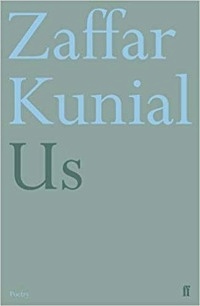
Zaffar Kunial was born in Birmingham and lives in Hebden Bridge.
He published a pamphlet in the Faber New Poets series in 2014 and spent that year as the Wordsworth Trust Poet-in-Residence.
Since his first public reading, of ‘Hill Speak’ at the 2011 National Poetry Competition awards, he has spoken at various literature festivals and in programmes for BBC radio, and won the Geoffrey Dearmer Prize for his poem ‘The Word’.
Us (Faber New Poets)
by Zaffar Kunial (Author)
Paperback
5 Jul 2018
Paperback: 64 pages
Publisher: Faber & Faber
Language: English
ISBN-10: 0571337651
ISBN-13: 978-0571337651
Dimensions: 195 x 135 x 10 mm
Publisher: Faber & Faber
new books
fleursdumal.nl magazine
More in: - Book News, Archive K-L, Archive K-L, Art & Literature News

A Death-scene
“O day! he cannot die
When thou so fair art shining!
O Sun, in such a glorious sky,
So tranquilly declining;
He cannot leave thee now,
While fresh west winds are blowing,
And all around his youthful brow
Thy cheerful light is glowing!
Edward, awake, awake–
The golden evening gleams
Warm and bright on Arden’s lake–
Arouse thee from thy dreams!
Beside thee, on my knee,
My dearest friend, I pray
That thou, to cross the eternal sea,
Wouldst yet one hour delay:
I hear its billows roar–
I see them foaming high;
But no glimpse of a further shore
Has blest my straining eye.
Believe not what they urge
Of Eden isles beyond;
Turn back, from that tempestuous surge,
To thy own native land.
It is not death, but pain
That struggles in thy breast–
Nay, rally, Edward, rouse again;
I cannot let thee rest!”
One long look, that sore reproved me
For the woe I could not bear–
One mute look of suffering moved me
To repent my useless prayer:
And, with sudden check, the heaving
Of distraction passed away;
Not a sign of further grieving
Stirred my soul that awful day.
Paled, at length, the sweet sun setting;
Sunk to peace the twilight breeze:
Summer dews fell softly, wetting
Glen, and glade, and silent trees.
Then his eyes began to weary,
Weighed beneath a mortal sleep;
And their orbs grew strangely dreary,
Clouded, even as they would weep.
But they wept not, but they changed not,
Never moved, and never closed;
Troubled still, and still they ranged not–
Wandered not, nor yet reposed!
So I knew that he was dying–
Stooped, and raised his languid head;
Felt no breath, and heard no sighing,
So I knew that he was dead.
Emily Brontë
(1818-1848)
poetry
fleursdumal.nl magazine
More in: Archive A-B, Brontë, Anne, Emily & Charlotte, In Memoriam
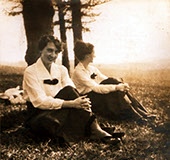
Grief
Exultant whirlwind wrung the branches ;
And the weak leaves were loosed with power.
I heard the pelting dissonances ;
Anguish in the autumn shower.
But living petals now take wing
Like butterflies with dusky flashes;
April flutters her white ashes
Inaudibly, remembering.
Gladys Cromwell
(1885-1919)
Grief
fleursdumal.nl magazine
More in: Archive C-D, Cromwell, Gladys, Gladys Cromwell

Poe’s cottage at Fordham
Here lived the soul enchanted
By melody of song;
Here dwelt the spirit haunted
By a demoniac throng;
Here sang the lips elated;
Here grief and death were sated;
Here loved and here unmated
Was he, so frail, so strong.
Here wintry winds and cheerless
The dying firelight blew,
While he whose song was peerless
Dreamed the drear midnight through,
And from dull embers chilling
Crept shadows darkly filling
The silent place, and thrilling
His fancy as they grew.
Here with brows bared to heaven,
In starry night he stood,
With the lost star of seven
Feeling sad brotherhood.
Here in the sobbing showers
Of dark autumnal hours
He heard suspected powers
Shriek through the stormy wood.
From visions of Apollo
And of Astarte’s bliss,
He gazed into the hollow
And hopeless vale of Dis,
And though earth were surrounded
By heaven, it still was mounded
With graves. His soul had sounded
The dolorous abyss.
Poor, mad, but not defiant,
He touched at heaven and hell.
Fate found a rare soul pliant
And wrung her changes well.
Alternately his lyre,
Stranded with strings of fire,
Led earth’s most happy choir,
Or flashed with Israfel.
No singer of old story
Luting accustomed lays,
No harper for new glory,
No mendicant for praise,
He struck high chords and splendid,
Wherein were finely blended
Tones that unfinished ended
With his unfinished days.
Here through this lonely portal,
Made sacred by his name,
Unheralded immortal
The mortal went and came.
And fate that then denied him,
And envy that decried him,
And malice that belied him,
Here cenotaphed his fame.
John Henry Boner
(1845-1903)
poetry
fleursdumal.nl magazine
More in: Archive A-B, Edgar Allan Poe, Poe, Edgar Allan
Ellen Hinsey’s new book-length sequence, The Illegal Age, is a powerful investigation into the twentieth-century’s dark legacy of totalitarianism and the rise of political illegality.
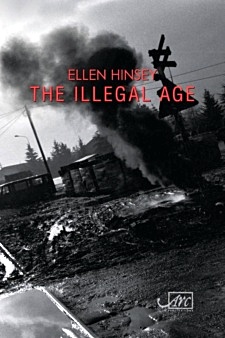 It explores the enduring potential for human beings to set neighbour against neighbour and commit final acts of violence. A book of lyrical reflection and prophesy, The Illegal Age chronicles the arrival of a new, disquieting reality unfolding in our midst.
It explores the enduring potential for human beings to set neighbour against neighbour and commit final acts of violence. A book of lyrical reflection and prophesy, The Illegal Age chronicles the arrival of a new, disquieting reality unfolding in our midst.
As Marilyn Hacker has written, “In dialogue with Celan, Szymborska, Milosz… this is a daring text – for its political acuity, and for its demonstration of the power in poetry to recount, remember, move the heart while opening the mind.”
Written in parallel with her first-hand research into the rise of authoritarianism carried out over the last decade, Hinsey’s volume warns that – rather than an “Age of Anxiety” – we may indeed be facing the start of the “Illegal Age”.
Ellen Hinsey was born in 1960 in Boston, Massachusetts. For the last two decades she has lived in Europe. She received a Bachelor of Fine Arts degree from Tufts University and a graduate degree from Université de Paris VII. She has taught at the French graduate school the Ecole Polytechnique and currently teaches at Skidmore College s Paris program. She is the international correspondent for The New England Review.
Hinsey’s work is concerned with history, ethics and democracy. Her first-hand accounts and analyses of the impact of the 2012 Russian presidential elections, the 2010 Polish presidential plane crash, Hungarian politics, Václav Havel’s ethical legacy and post-1989 German reconstruction have been published in The New England Review. A selection of these essays are included in her book <ik>Mastering the Past: Contemporary Central and Eastern Europe and the Rise of Illiberalism (Telos Press, 2017). Her current work addresses global authoritarianism.
Hinsey’s first book, Cities of Memory, draws on her experiences at the Berlin Wall on the weekend of November 9, 1989, as well as in Prague during the Velvet Revolution. The book received the Yale Series Award and was published by Yale University Press in 1996. Her second book, The White Fire of Time (Wesleyan University Press, 2002 / Bloodaxe Books, 2003), written after a family tragedy, is an exploration of ethics and renewal.
Later, you will realize that compromise is the wood that burns
Most brightly in the hour before regret.
But by then, all the doors will have been marked in yellow chalk.
Still, let us not pass each other this final time, without recognition,
Without looking each other in the eye.
Remember: in the ink-light of testimony, a record may still be kept.
Ellen Hinsey (fragment)
The Illegal Age
by Ellen Hinsey (Author)
PBS Autumn Choice 2018
Publisher: Arc Publicationas
July 2018
120 pages
Language: English
ISBN-10: 191146938X
ISBN-13: 978-1911469384
Product Dimensions: 15 x 2.2 x 21 cm
Hardcover £13.99
Paperback £10.99
new books
fleursdumal.nl magazine
More in: - Book News, Archive G-H, Art & Literature News, EDITOR'S CHOICE
In the period between 1815 and 1820, Mary Shelley wrote her most famous novel, Frankenstein; or, The Modern Prometheus, as well as its companion piece, Mathilda, a tragic incest narrative that was confiscated by her father, William Godwin, and left unpublished until 1959. She also gave birth to four—and lost three—children.
 In this hybrid text, Rachel Feder interprets Frankenstein and Mathilda within a series of provocative frameworks including Shelley’s experiences of motherhood and maternal loss, twentieth-century feminists’ interests in and attachments to Mary Shelley, and the critic’s own experiences of pregnancy, childbirth, and motherhood.
In this hybrid text, Rachel Feder interprets Frankenstein and Mathilda within a series of provocative frameworks including Shelley’s experiences of motherhood and maternal loss, twentieth-century feminists’ interests in and attachments to Mary Shelley, and the critic’s own experiences of pregnancy, childbirth, and motherhood.
Harvester of Hearts explores how Mary Shelley’s exchanges with her children—in utero, in birth, in life, and in death—infuse her literary creations. Drawing on the archives of feminist scholarship, Feder theorizes “elective affinities,” a term she borrows from Goethe to interrogate how the personal attachments of literary critics shape our sense of literary history.
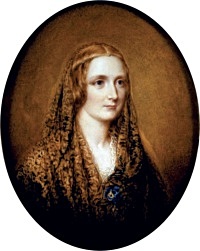 Feder blurs the distinctions between intellectual, bodily, literary, and personal history, reanimating the classical feminist discourse on Frankenstein by stepping into the frame.
Feder blurs the distinctions between intellectual, bodily, literary, and personal history, reanimating the classical feminist discourse on Frankenstein by stepping into the frame.
The result—at once an experimental book of literary criticism, a performative foray into feminist praxis, and a deeply personal lyric essay—not only locates Mary Shelley’s monsters within the folds of maternal identity but also illuminates the connections between the literary and the quotidian.
Rachel Feder is an assistant professor of English and literary arts at the University of Denver. Her scholarly and creative work has appeared in a range of publications including ELH, Studies in Romanticism, and a poetry chapbook from dancing girl press.
Rachel Feder (Author)
Harvester of Hearts
Motherhood under the Sign of Frankenstein
Cloth Text – $99.95
ISBN 978-0-8101-3753-0
Paper Text – $34.95
ISBN 978-0-8101-3752-3
August 2018
Women’s Studies
Literary Criticism
152 pages
Northwestern University Press
new books
fleursdumal.nl magazine
More in: - Book News, - Book Stories, Archive E-F, Archive S-T, Art & Literature News, Mary Shelley, Shelley, Mary, Shelley, Percy Byssche, Tales of Mystery & Imagination

Requiescat
Strew on her roses, roses,
And never a spray of yew.
In quiet she reposes:
Ah! would that I did too.
Her mirth the world required:
She bathed it in smiles of glee.
But her heart was tired, tired,
And now they let her be.
Her life was turning, turning,
In mazes of heat and sound.
But for peace her soul was yearning,
And now peace laps her round.
Her cabin’d, ample Spirit,
It flutter’d and fail’d for breath.
To-night it doth inherit
The vasty hall of Death.
Matthew Arnold
(1822-1888)
poetry
fleursdumal.nl magazine
More in: #More Poetry Archives, Archive A-B, Archive A-B, Galerie des Morts
In deze grote overzichtstentoonstelling maken we kennis met het spannende culturele klimaat in Groningen aan het begin van de 20ste eeuw: de periode waarbinnen De Ploeg is ontstaan.
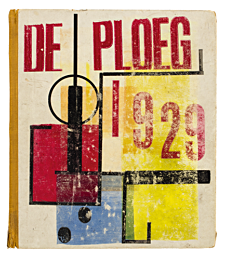 Het museum laat ruim honderd werken zien, waaronder schilderijen, tekeningen, drukwerk en grafiek van Ploegleden zoals Jan Wiegers, Johan Dijkstra en Jan Altink. In contrast met werk van coryfeeën zoals Jozef Israëls, H.W. Mesdag, Otto Eerelman en tijdgenoten. Het toont hoe de ‘jonge wilden’ zich losmaakten van de toenmalige gevestigde orde. Daarnaast is er aandacht voor het werk van Ernst Ludwig Kirchner en Vincent van Gogh, die beiden van groot belang zijn geweest voor de schilderkunstige ontwikkeling binnen De Ploeg.
Het museum laat ruim honderd werken zien, waaronder schilderijen, tekeningen, drukwerk en grafiek van Ploegleden zoals Jan Wiegers, Johan Dijkstra en Jan Altink. In contrast met werk van coryfeeën zoals Jozef Israëls, H.W. Mesdag, Otto Eerelman en tijdgenoten. Het toont hoe de ‘jonge wilden’ zich losmaakten van de toenmalige gevestigde orde. Daarnaast is er aandacht voor het werk van Ernst Ludwig Kirchner en Vincent van Gogh, die beiden van groot belang zijn geweest voor de schilderkunstige ontwikkeling binnen De Ploeg.
Avant-garde in Groningen. De Ploeg 1918-1928
100 jaar De Ploeg
Nog t/m 04 november 2018
Groninger museum, Museumeiland 1, 9711 ME Groningen
http://www.groningermuseum.nl
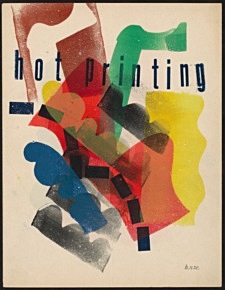 Het ontstaan van De Ploeg in 1918
Het ontstaan van De Ploeg in 1918
Kunstkring De Ploeg ontstond in juni 1918 als reactie op de “Tentoonstelling van werk van Groningsche Kunstenaars” in het Kunstlievend Genootschap Pictura. Hierbij was een groot aantal jonge kunstenaars niet uitgenodigd. Voor schilders zoals Jan Wiegers, Jan Altink en Johan Dijkstra was het duidelijk dat de negentiende-eeuwse schilderkunstige idealen afgeschud moesten worden. Zij zochten aansluiting bij meer contemporaine ontwikkelingen in de beeldende kunst. Het toeval zou hen daarbij een handje helpen. Jan Wiegers die gedurende een gezondheidskuur in Davos (1920-1921) in Zwitserland bevriend was geraakt met Ernst Ludwig Kirchner, introduceerde in Groningen een schilderkunst, die verwant is aan het Duitse expressionisme.
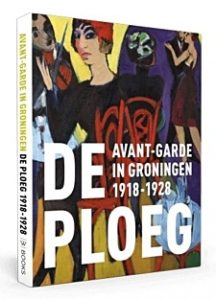 Publicatie bij de tentoonstelling
Publicatie bij de tentoonstelling
Bij de tentoonstelling is het boek Avant- garde in Groningen. De Ploeg 1918-1928 verschenen, waarin niet alleen het ontstaan maar ook de voorgeschiedenis van De Ploeg aan bod komt.
De publicatie komt tot stand vanuit een samenwerking van het Groninger Museum met de Stichting 100 jaar De Ploeg en WBOOKS. Het boek verscheen tijdens de Boekenweek in maart 2018.
Avant-garde in Groningen- De Ploeg 1918-1928
Auteurs: Anneke de Vries, Doeke Sijens, Egge Knol, Han Steenbruggen, Henk van Os, Jikke van der Spek, Kees van der Ploeg, Mariëtta Jansen, Mieke van der Wal, Peter Vroege
€ 29,95
ISBN 9789462582484
Aantal pagina’s 272
Illustraties ca 350 afbeeldingen
Formaat 24,5 x 31 cm
Uitvoering Gebonden
Taal Nederlands
2018
Uitg. W-Books
In samenwerking met Groninger Museum & Stichting 100 jaar De Ploeg
new books
fleursdumal.nl magazine
More in: - Book News, - Book Stories, Archive U-V, Art & Literature News, De Ploeg, Hendrik Nicolaas Werkman, Werkman, Hendrik Nicolaas
Thank you for reading Fleurs du Mal - magazine for art & literature